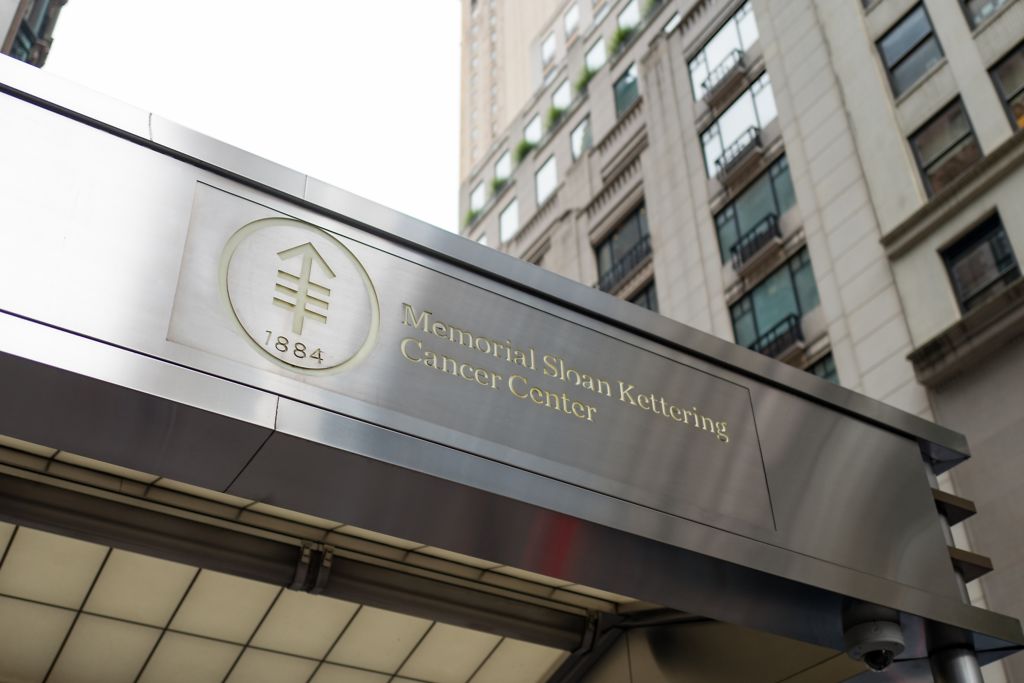
When rectal cancer advances locally, oncologists fight back with a series of treatments. Chemotherapy and radiation are followed by surgery, and this regimen can result in a cure. But this multi-pronged attack leaves patients with other complications so clinicians have been looking for a way to manage rectal cancer that doesn’t require surgery. A clinical trial testing a GSK immunotherapy has early clinical trial results suggesting the drug might be able to offer patients that alternative.

Using Informed Awareness to Transform Care Coordination and Improve the Clinical and Patient Experience
This eBook, in collaboration with Care Logistics, details how hospitals and health systems can facilitate more effective decision-making by operationalizing elevated awareness.
The clinical trial enrolled patients whose rectal cancer is characterized by mismatch repair deficiencies (dMMR), which are mutations in genes involved in fixing errors when DNA is copied in a cell. Mismatch-repair-deficient cancers do not respond well to chemotherapy, but tumors that have this mutation and have spread beyond the original cancer site do respond to a type of immunotherapy called a checkpoint inhibitor.
Scientists at Memorial Sloan Kettering Cancer Center wanted to see whether using the approved GSK checkpoint blocking-drug dostarlimab (marketed as Jemperli) could replace some or all of the chemo, radiation, and surgery regimen that is the standard of care for rectal cancer. The clinical trial started by swapping out chemo for Jemperli. So far, it’s the only treatment patients have needed.
The Phase 2 study has enrolled 18 patients to date. Results for 12 patients that have had at least six months of follow-up showed that all of them achieved a clinical complete response, which means that there is no detectable sign of the cancer. Those results were published on June 5 in The New England Journal of Medicine. Andrea Cercek, co-director of MSK’s Center for Young-Onset Colorectal and Gastrointestinal Cancers and one of the two principal investigators for the study, added results for two more patients to the total during her June 5 presentation of the data during the annual meeting of the American Society of Clinical Oncology (ASCO).
“We’re obviously beyond thrilled and we’ve treated a total of 14 patients to date,” Cercek said. “And all 14, 100% of them have had a complete clinical response to dostarlimab alone. We have not had to irradiate anyone and no one has gone to surgery.”

When Investment Rhymes with Canada
Canada has a proud history of achievement in the areas of science and technology, and the field of biomanufacturing and life sciences is no exception.
Jemperli is an antibody designed to block PD-1, a so-called “checkpoint” protein on T cells that stops them from recognizing tumors. Blocking PD-1 enables T cells to target and destroy cancer cells. The class of checkpoint inhibitors includes blockbuster products, such as Merck’s Keytruda and Opdivo from Bristol Myers Squibb. Jemperli joined them on the market last year, winning its first FDA approval for treating advanced endometrial cancer that is characterized by dMMR. Months after that regulatory decision, the agency expanded the drug’s approval to cover all solid tumors that have the dMMR genetic signature. GSK acquired Jemperli via its 2018 buyout of Tesaro. The drug, still a relatively new contributor to GSK’s revenue, accounted for £5 million (about $6.2 million) in sales last year, according to the company’s annual report.
Kimmie Ng, associate chief of the division of gastrointestinal oncology at Dana Farber Cancer Institute, provided additional perspective on the MSK study following Cercek’s presentation. Ng said that the data are still exploratory due to the small sample size and short median follow-up. Much longer follow-up of these patients is needed. Pointing to data from another rectal cancer study, Ng noted that the vast majority of tumor regrowth can happen within two years after completing treatments of chemotherapy and radiation, what’s called a neoadjuvant therapy that’s intended to keep cancer from coming back. Other limitations include the lack of a control arm and the results coming from a single institution. The only data so far are for complete response, with no other data yet on survival or other outcomes.
While a randomized and well controlled study would answer some of these questions, Ng doubts this is feasible. This mutation is extremely rare in rectal cancers, which makes it hard to recruit enough patients for such a study. Given the results so far, another challenge is the willingness of study participants to be randomized to the control group. Nonetheless, in order for this therapy to change the standard of care, Ng said a larger sample size and longer follow-up is needed to provide data on more measures, such as disease-free survival at three years and organ preservations rates. Expanding the clinical trial to include other institutions would help to show that the results can be replicated in all cancer care settings. Even so, Ng said that the results so far are clinically meaningful.
“The 100% clinical complete response rate is unprecedented in rectal cancer and the potential to decrease morbidity by eliminating pelvic radiation and surgery for our patients is huge,” she said.
Complications following rectal cancer surgery include bowel and bladder dysfunction, sexual dysfunction, and infertility. In addition, after the procedure many patients require a permanent stoma, an opening in the abdomen to allow waste to leave the body. Adverse effects listed on Jemperli’s drug label include fatigue, nausea, diarrhea, anemia, and constipation. No severe adverse effects have been reported from Jemperli in the rectal cancer study to date. Ng said that in order for a drug to become an alternative to surgery, it will be critical to identify predictive biomarkers to guide clinicians on their treatment decisions. Cercek said the dMMR mutation is present in an estimated 5% to 10% of rectal cancers.
Photo: Smith Collection/Gado, Getty Images












